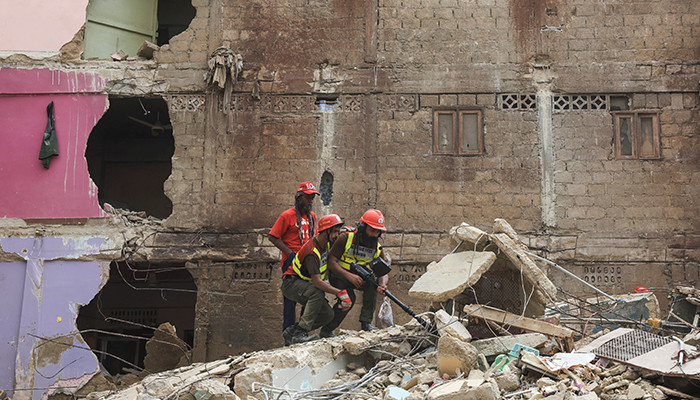Recurring Building Collapses Plague Karachi, Claiming Lives
The frequency of building collapses in Karachi remains a critical concern, with numerous fatalities recorded since 2017. Despite these repeated catastrophes, insufficient regulatory oversight, lax enforcement, and delayed responses continue to put residents at risk throughout the metropolis.
These fatal incidents are primarily attributed to unlawful and poorly maintained structures. Many of these buildings have been deemed hazardous for extended periods but remain inhabited due to the Sindh Building Control Authority’s (SBCA) inadequate enforcement.
Timeline of Tragedies
A review of recent years highlights a disturbing sequence of events:
- July 2017: A three-story residential building in Liaquatabad collapsed, resulting in five deaths and nine injuries. Subsequently, two adjacent buildings were declared unsafe and slated for demolition.
- February 2019: A four-story building in Malir’s Jafar-e-Tayyar Society crumbled, leading to the recovery of two bodies and the rescue of numerous individuals.
- March 2020, Golimar (Gulbahar): A devastating incident occurred, causing 27 fatalities and over 50 injuries due to a significant structural failure.
- June 2020: A five-story building in Lyari collapsed, resulting in 22 deaths. A majority of the victims were not identified.
- September 2020, Korangi Allahwala Town: Another collapse led to two deaths and six injuries, including women and children.
- September 2020, Lyari: A subsequent building collapse in the same vicinity claimed the lives of two laborers and injured 12. The SBCA evacuated a neighboring building as a precaution.
- October 2023, Shah Faisal Colony: A building under construction partially collapsed, causing four deaths and four injuries.
- June 2025, Kharadar: The roof and staircase of a six-story building gave way. Fortunately, no deaths were reported, and 22 individuals were rescued.
- July 2025, Lyari: A six-story building collapsed, resulting in more than 10 deaths.
These recurring incidents emphasize the SBCA’s ineffectiveness, as their actions frequently consist of issuing notifications and warnings rather than implementing tangible enforcement and evacuation measures. Experts and local residents attribute the persistent loss of life to a combination of substandard construction practices, unlawful construction projects, and delayed response times.
The ongoing incidents of building failures in Karachi highlight critical concerns regarding governance, accountability, and proactive disaster prevention within one of Pakistan’s most densely populated urban centers.



Comments (0)
No comments yet. Be the first to comment!
Leave a Comment